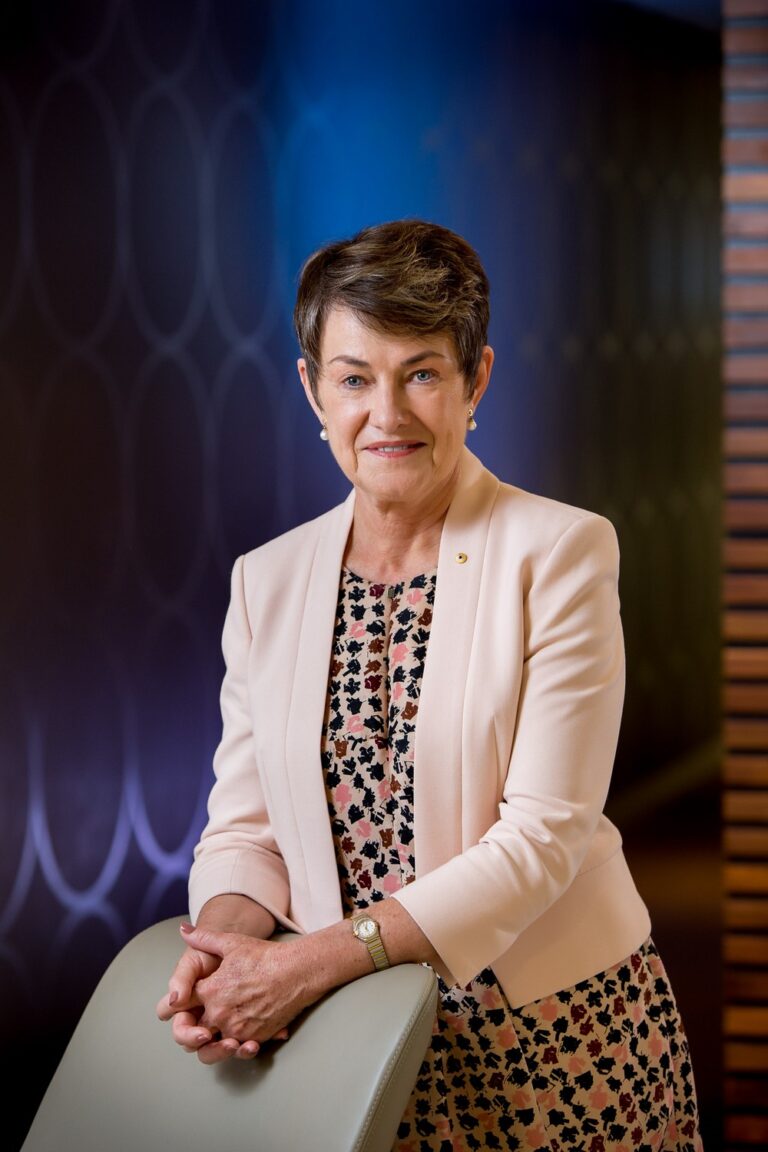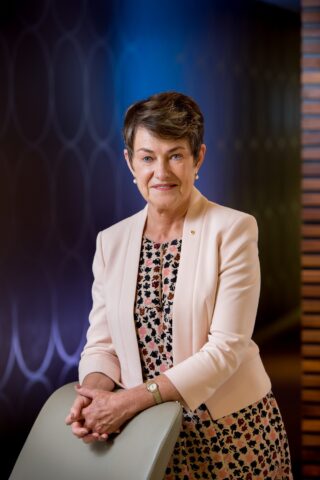- Entry type: Person
- Entry ID: AWE5578
Proust, Elizabeth
- AO, FAICD

- Occupation Chairperson, Chief Executive Officer, Lawyer, Public servant
Summary
Elizabeth Proust is one of Melbourne, Victoria’s leading business figures, having held leadership roles in the private and public sectors in Australia for over 30 years. She is Chairman of Nestle Australia Ltd, Chairman of Bank of Melbourne, a director of Perpetual Ltd, Spotless Ltd, Insurance Manufacturers Australia Pty Ltd, Sinclair Knight Merz Holdings Pty Ltd, and of Sports Australia Hall of Fame. She is also a member of the Advisory Board of JP Morgan, and a Fellow of the Australian Institute of Company Directors.
Prior to taking on roles as a non-executive director, Elizabeth spent eight years with the ANZ Group, including four years as Managing Director of Esanda. At ANZ itself, she held the positions of Managing Director, Metrobanking and Group General Manager, Human Resources, Corporate Affairs and Management Services. She was global head of HR at ANZ at a time when the bank was represented in some 43 countries.
Before joining ANZ, Proust was Secretary of the Victorian Department of the Premier and Cabinet and Chief Executive of the City of Melbourne. She had previously been appointed Secretary of the Victorian Attorney General’s Department. Proust’s first role after graduation was in public affairs at BP Australia.
Educated by the Good Samaritan sisters in Balmain and Wollongong, Proust worked for the Young Catholic Students’ movement after leaving school. She has a BA (Hons) from La Trobe University and a Law degree from the University of Melbourne.
Proust was made an Officer of the Order of Australia in 2010 for distinguished service to public administration and to business, through leadership roles in government and private enterprise, as a mentor to women, and to the community through contributions to arts, charitable and educational bodies. Previous board roles include Chairman of the Melbourne Symphony Orchestra, Chairman of the Centre for Dialogue at La Trobe University and a director of Nonprofit Australia.
Go to ‘Details’ below to read a reflective essay written by Elizabeth Proust for the Trailblazing Women and the Law Project.
Details
The following additional information was provided by Elizabeth Proust and is reproduced with permission in its entirety.
I had a very traditional Catholic upbringing and education at primary and secondary schools (primary schools were in Orange, Wagga Wagga and Balmain) and I completed my secondary education in 1968 at St Mary’s Wollongong. My parents expected that all 9 of us would go to university and the nuns who taught me and my sisters reinforced this.
In 1969, I did what would now be called a “gap year” and worked for the Young Catholic Students movement in Melbourne. My future husband, Brian Lawrence, was working there, taking 2 years off between finishing his law degree at Melbourne University and starting articles.
I then spent 2 years at Sydney University starting an Arts degree (Government, Psychology, Anthropology and English). Most of my class mates from Wollongong did teaching or nursing and I started Arts without a clear idea of where this might lead.
To my parents’ horror I married at 21 and moved back to Melbourne. I completed a B.A (Hons) at La Trobe University, the only university in Melbourne to recognise some of my second year subjects. I had a daughter and started post graduate studies. These have never been completed because I started a law degree at Melbourne University in 1979 and never went back to my post graduate work.
I should explain that my Honours thesis was on the (then) Workers’ Compensation Board and the relationship between barristers and their clients in that jurisdiction (my husband by this time was a barrister, but not in this jurisdiction). My post graduate studies were intended to expand on this work but I became more interested in the law, and far less interested in either sociology or an academic career.
My Law degree was all undertaken part time as finances dictated that I needed to work. Generous employers (BP Australia, BP International and the Victorian Government) allowed me time off work and covered tuition costs but getting to lectures (held then only between 9 and 4) was always a struggle and I owe a debt of gratitude to the many people who took notes for me and assisted in many other ways. I sat my final exams on London, overseen by Sam Ricketson who was on sabbatical at the time.
So, it was an unusual way to complete a Law degree and I sometimes think that the part time nature of my degree, and my disconnect from much of campus life probably led me away from a life in the law. I never undertook summer school subjects nor sought articles, as, somewhere in the 8 years it took me to graduate, I realised that there were other interesting career options.
When I graduated in 1986 I was 36 and becoming senior in the Victorian public service. Articles seemed a big backward step, both in career terms and financially.
However, the degree has never felt anything but integral to what I have done. As a company director today, a working knowledge of many aspects of the law (corporations law, work health and safety, employment law, etc) is vital to much of what I do.
But it has always been relevant. I was Secretary of the (then) Attorney-General’s Department in the late 1980’s and being accepted as a lawyer (even if it was only as a very junior one) was important. This was especially so as the then Attorney-General, Andrew McCutcheon, was an architect by training, the State of Victoria’s first, and I think, only, non “legal” Attorney-General.
Then as Secretary to the Department of Premier and Cabinet, a working knowledge of the law was an advantage. The Cabinet Office was, and is, in this department so that much of the business of the Department is the production of legislation for Parliament.
Digital resources
Published resources
-
Newspaper Article
- Lunch with Elizabeth Proust, Szego, Julie, 2012, http://www.theage.com.au/entertainment/lunch-with-elizabeth-proust-20120920-267kg.html
-
Site Exhibition
- Australian Women Lawyers as Active Citizens, http://www.womenaustralia.info/lawyers/biogs/AWE5578b.htm
